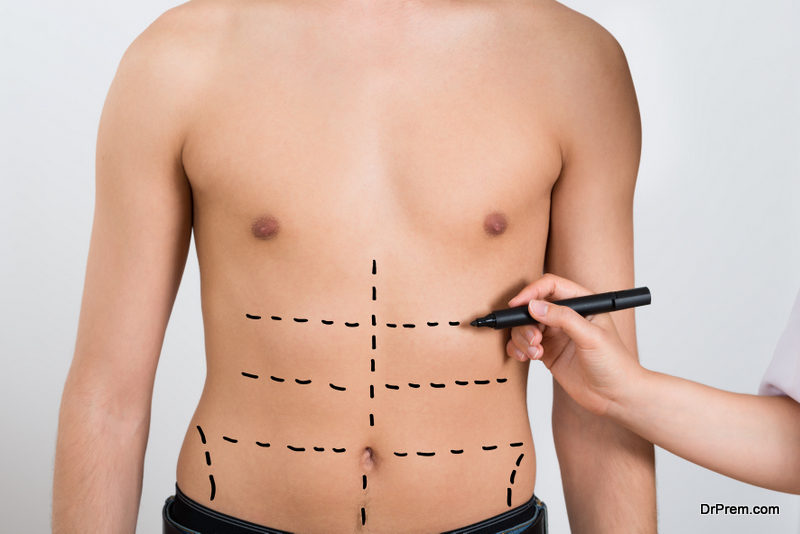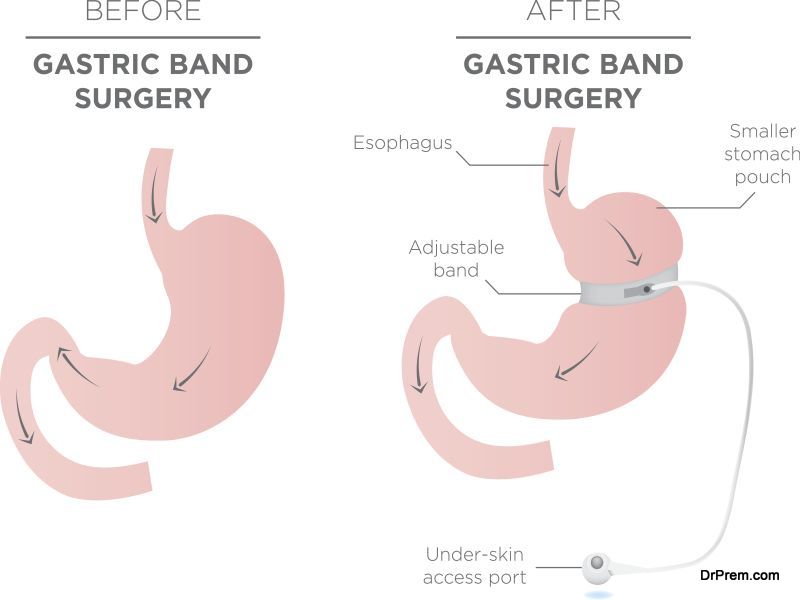With countless diet plans, workout programs, and quick-fix weight loss plans out there, it’s hard to decide which path is right for you. If you’re struggling to lose weight, you’re not alone. In fact, 50% of the American population admits to wanting to lose weight. Are you at your wit’s end? Have you tried every diet and exercise program out there? If you’re at the end of your rope, you might be considering weight loss surgery. For many, this is a lifesaving procedure when their excess weight is compromising their health. For others, it’s a fix for a lifelong problem. Whatever the reason behind your motivation, keep reading to discover a few things to consider before deciding on weight loss surgery.
Have You Exhausted All Other Options?
 Before considering any type of weight loss surgery, it’s important to exhaust all other resources and avenues. Most doctors will first recommend a strict diet and exercise plan. This may involve seeing a nutritionist. Based on your current weight and weight loss goals, your doctor will design a diet and exercise plan that best suits your needs. Avoid fad diets or quick fixes that promise instant results. Not only are these false claims, but fast results also don’t last. Most people who lose weight this way end up putting it back on shortly thereafter. You also need to give each diet you try ample time to work. You won’t see results overnight. It takes time for your metabolism to change and for your body to let go of stubborn body fat. But in the same turn, don’t weigh yourself incessantly. Your weight can fluctuate 2-3 pounds every day! This is due to water weight and countless other factors. Weighing yourself once a week or even once a month will give you a more realistic picture of your progress. If diet and exercise aren’t enough, your doctor may suggest weight loss surgery. This is common when your weight is attributed to underlying factors including genetic obesity or thyroid issues.
Before considering any type of weight loss surgery, it’s important to exhaust all other resources and avenues. Most doctors will first recommend a strict diet and exercise plan. This may involve seeing a nutritionist. Based on your current weight and weight loss goals, your doctor will design a diet and exercise plan that best suits your needs. Avoid fad diets or quick fixes that promise instant results. Not only are these false claims, but fast results also don’t last. Most people who lose weight this way end up putting it back on shortly thereafter. You also need to give each diet you try ample time to work. You won’t see results overnight. It takes time for your metabolism to change and for your body to let go of stubborn body fat. But in the same turn, don’t weigh yourself incessantly. Your weight can fluctuate 2-3 pounds every day! This is due to water weight and countless other factors. Weighing yourself once a week or even once a month will give you a more realistic picture of your progress. If diet and exercise aren’t enough, your doctor may suggest weight loss surgery. This is common when your weight is attributed to underlying factors including genetic obesity or thyroid issues.
What is Your Current State of Health?
 Let’s face it, your health is already being compromised due to your weight. Obesity causes a long list of health complications including (but not limited to):
Let’s face it, your health is already being compromised due to your weight. Obesity causes a long list of health complications including (but not limited to):
- Diabetes
- High blood pressure
- Stroke
- Coronary heart disease
- Stroke
- Gallbladder disease
- Osteoarthritis
Not only will poor health make you eligible for weight loss surgery, but it can also make the surgery itself riskier. Not only does surgery puts strain on your heart, but going under anesthesia can also cause breathing complications and even death in unhealthy patients. If your heart health is compromised due to obesity, doctors may be hesitant to operate. Discuss the risks with your surgeon and what you can do to improve your chances of having a successful weight loss procedure.
But the risk of surgery itself isn’t the only thing to think about. Like with any medical procedure, there are some risks associated with weight loss surgery recovery. Here are a few:
- Ulcers
- Vomiting
- Hernia
- Bowel obstruction
- Low blood sugar
You and your doctor can decide if the benefits of weight loss surgery outweigh the risks. For most people, their obesity is controlling their lives. If you find yourself without any other options, you may adopt the “What do I have to lose?” mentality.
How Much Weight Do You Want to Lose?
 Are you looking to lose 10 or 20 pounds? While this is a considerable amount of weight for many people, it’s not the type of weight loss that requires surgery. Losing 20 pounds can be done using a well-balanced diet and adequate exercise. Most surgeons require patients are at least 100 pounds overweight before even considering a procedure. Candidates must also be over the age of 16 and younger than 70. Before choosing weight loss surgery, decide how much your obesity is currently affecting your life and lfiestyle. Are you restricted to your home? Do you have difficulty walking and breathing? These are all signs that your weight is out of control and you may need medical intervention.
Are you looking to lose 10 or 20 pounds? While this is a considerable amount of weight for many people, it’s not the type of weight loss that requires surgery. Losing 20 pounds can be done using a well-balanced diet and adequate exercise. Most surgeons require patients are at least 100 pounds overweight before even considering a procedure. Candidates must also be over the age of 16 and younger than 70. Before choosing weight loss surgery, decide how much your obesity is currently affecting your life and lfiestyle. Are you restricted to your home? Do you have difficulty walking and breathing? These are all signs that your weight is out of control and you may need medical intervention.
How Much Will it Cost?
 When it comes to any medical procedure, cost is always a concern. If you have health insurance, ask your carrier if they cover weight loss surgery. Coverage varies from one company to the next. And even within the same company, the type of plan you have also plays a part. If your insurance company does cover weight loss surgery, make sure you meet the specific requirements. Common procedures that are covered include:
When it comes to any medical procedure, cost is always a concern. If you have health insurance, ask your carrier if they cover weight loss surgery. Coverage varies from one company to the next. And even within the same company, the type of plan you have also plays a part. If your insurance company does cover weight loss surgery, make sure you meet the specific requirements. Common procedures that are covered include:
- Lap-Band
- Gastric bypass
- Gastric sleeve
Most insurance companies will cover at least part of the cost of your surgery if your weight is a medical risk. See more information here about your finance options.
What is Recovery Like?
 While it’s difficult for some people to look past surgery day, it’s important to also consider the type of recovery you’ll have. Weight loss surgery shouldn’t be taken lightly. Not only will you be recovering from the procedure itself, but you’ll also be undergoing an entire lifestyle change. Depending on the type of surgery you have, your stomach will be significantly smaller than it once was. This means adopting a completely different diet and eating regime. Most surgeries require patients to consume a strictly liquid diet directly following surgery. After this, healthy foods in very small portions are slowly added into your diet. It’s also important to stay active post-surgery. While plenty of rest is important for healing, the more active you are, the better you’ll feel. This doesn’t mean vigorous workouts, but walking, performing daily tasks around the house, and stretching periodically throughout the day.
While it’s difficult for some people to look past surgery day, it’s important to also consider the type of recovery you’ll have. Weight loss surgery shouldn’t be taken lightly. Not only will you be recovering from the procedure itself, but you’ll also be undergoing an entire lifestyle change. Depending on the type of surgery you have, your stomach will be significantly smaller than it once was. This means adopting a completely different diet and eating regime. Most surgeries require patients to consume a strictly liquid diet directly following surgery. After this, healthy foods in very small portions are slowly added into your diet. It’s also important to stay active post-surgery. While plenty of rest is important for healing, the more active you are, the better you’ll feel. This doesn’t mean vigorous workouts, but walking, performing daily tasks around the house, and stretching periodically throughout the day.
Before you even return home, weight loss surgery patients should plan to spend 2-3 nights in the hospital. During this time, doctors will monitor your progress, vitals, and check for any side effects or complications associated with the surgery. Within 3 to 6 weeks of returning home, you should be able to return to normal daily activities. Your surgeon will see you for a follow-up visit and your primary doctor or nutritionist will work with you to ensure you stay on track with your new diet.
Weight loss surgery is a life-changing experience for those who are eligible. If genetics or another medical condition has left you significantly overweight, weight loss surgery can help you reclaim your life. Just be sure to do your research before opting for any type of medical procedure and consult your primary care physician for information and recommendations.
Article Submitted By Community Writer




